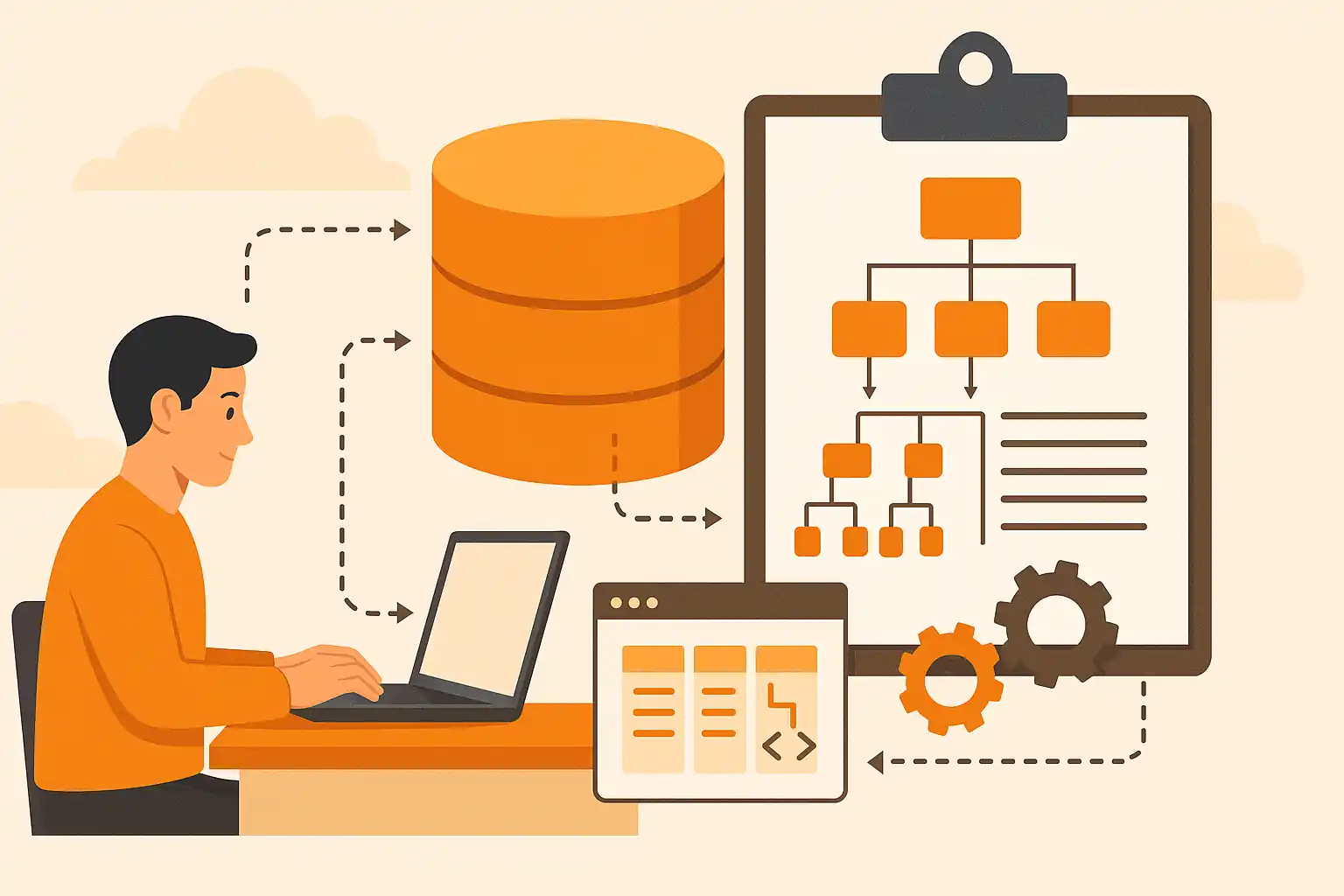
When planning a new app,especially at MVP stage,you don’t need the “perfect” schema. You need a plan that scales, adapts, and lets you learn quickly. Here’s how to approach database design without overengineering.
1) What “scalable” means for databases
- Handle more users and more data without crawling.
- Absorb feature changes without massive rewrites.
- Integrate easily with APIs and frontends.
Scalability isn’t only about millions of users,it’s about staying flexible and fast as the product grows.
2) Why MVPs should avoid overcomplication
MVPs evolve weekly based on feedback, analytics, and stakeholder input. Heavy, rigid schemas slow you down,and you’ll likely redo them when assumptions change. Keep it lean and iterate.
3) Real example: marketplace MVP with MongoDB
We shipped an MVP with listings, categories, and orders. Early users asked for wishlists, location filters, and flash sales. Because we used MongoDB documents:
- Product and user data stayed flexible.
- New fields were added safely without breakage.
- We iterated quickly to match user expectations.
That agility was decisive during discovery loops.
4) Does that mean SQL is “bad”?
No. PostgreSQL/MySQL shine when:
- Data is highly structured with strict relationships (e.g., finance).
- Business rules are well-defined from day one.
- You need strong reporting/analytics out of the box.
For fast-moving MVPs (especially with dynamic frontends or microservices), NoSQL often reduces bottlenecks. As the product matures, you can tighten constraints or mix in relational stores.
5) Key takeaways for founders & product owners
- Don’t overengineer the MVP schema,ship lean and iterate.
- Prioritize flexibility and ease of change early on.
- Pick tech for your current stage, not hypothetical scale.
- Revisit and optimize after product-market fit.
